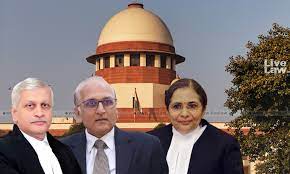Knowing the killer: On SC referring death penalty issues to Constitution Bench
The Supreme Court of India has done well to seek norms to present mitigating factors for awarding death
Sentencing after conviction is a knotty problem in cases relating to capital offences. Trial judges are called upon to make a decision on whether only a death sentence will meet the ends of justice, or a life term will be enough. As a salutary norm, the Supreme Court has laid down that the death penalty can be imposed only in the “rarest of rare” cases. Subsequent judgments have sought to buttress this principle by holding that the gruesome nature of the offence may not be the sole criterion to decide what brings it under the ‘rarest of rare’ category. The offender, his socio-economic background and his state of mind are also key factors in this regard. In practice, the sentencing part of the trial takes place after the court records a conviction. It is often done on the same day as the verdict, with only some limited arguments being heard on ‘mitigating circumstances’ from the convict’s side and on the ‘aggravating circumstances’ from the prosecution. The latest order of a three-judge Bench, referring to a Constitution Bench the issue of granting a meaningful opportunity to convicts on the question of sentence, is a big stride in humanising the sentencing process.
Same-day sentencing has been upheld by several judgments, with the Supreme Court often saying where a meaningful opportunity has been given to the convict to present mitigating factors, the mere fact that death was awarded on the same day would not vitiate the sentence. Some High Courts have given a chance to convicts to present mitigating factors so that the inadequacy of the sentencing process in the trial court does not matter. Present thinking, however, is veering towards the view that courts must elicit reports from the jail authorities, probation officers and even trained psychologists to assess the mitigating factors in favour of not imposing the death penalty. In its referral order, the Bench has also raised the question as to the stage at which mitigating factors are to be presented. It has noted that the scales are tilted against the convicts now, as it is only after conviction that they are able to speak about mitigating circumstances. The prosecution, on the other hand, presents its case from the beginning on how heinous the crime was, and how much the accused deserved maximum punishment. The Constitution Bench may come up with new guidelines under which the trial courts themselves can hold a comprehensive investigation into factors related to the upbringing, education and socio-economic conditions of an offender before deciding the punishment. The legal and moral dilemma of sending someone to the gallows, of course, will subsist only as long as the death penalty remains on the statute book.
